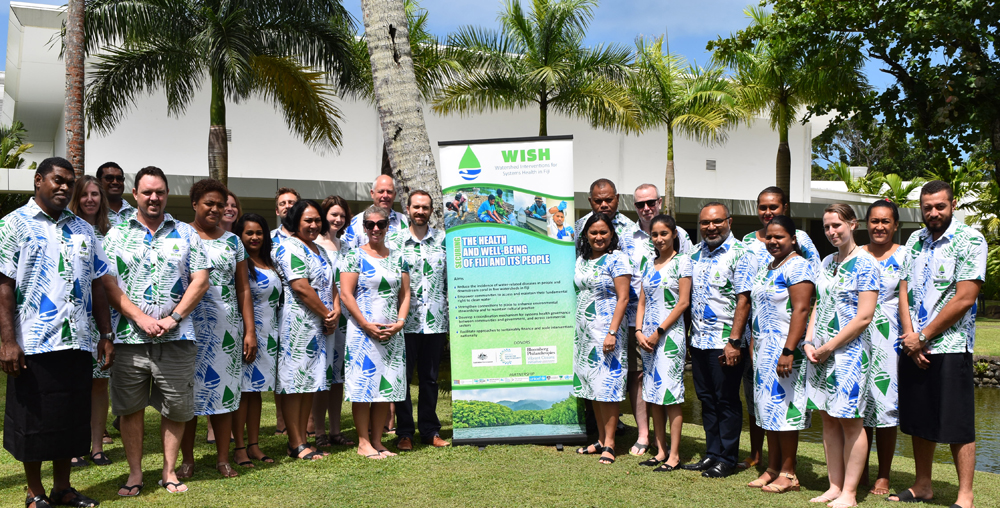
Fiji National University (FNU) in collaboration with the University of Sydney, Edith Cowan University, Ministry of Health and Medical Services Fiji, Wildlife Conservation Society and the World Health Organization (WHO) participated in a week-long mid-term review workshop for the Watershed Interventions for Systems Health (WISH) project in Pacific Harbour.
WISH is a three-year project that was awarded a AUD2.01 million grant by the National Health & Medical Research Council of Australia in July 2018, which seeks to optimise water, sanitation and catchment management, improve outbreak response and minimise the impact of water-borne diseases in Fiji.
Representing FNU is College of Medicine, Nursing and Health Sciences’ (CMNHS) Associate Dean Research, Dr Donald Wilson, who said: “Water-borne diseases are endemic in Fiji with 20 reported typhoid outbreaks since 2005, an outbreak of dengue affecting 27,000 in 2013-14 and a three-fold increase in leptospirosis since the Tropical Cyclone Winston in 2016”.
“There is growing evidence that poor land practices can contribute to the spread of waterborne diseases such as typhoid, leptospirosis and dengue in the tropics.”
“For instance, the growing number of cases of typhoid is associated with vegetation removal from catchments and leptospirosis with livestock sharing waterbodies with humans.”
Dr Wilson said that those same poor land practices also had negative impacts on downstream freshwater and marine resources on which local people rely for food, livelihoods and cultural practice.
“The project also aims to create evidence around community-based water management systems and is anticipated to provide local solutions that are most likely to positively reduce disease burdens.”
A multi-sectoral project, WISH is the first of its kind for Fiji, and is taking an integrated and preventative approach to benefit the health and well-being of people and their surroundings.
Working across the five river sub-catchments located in Tailevu, Namosi, Lomaiviti and Bua provinces, all of which had documented cases of typhoid, leptospirosis and dengue, the project focuses on targeted and integrated upstream catchment management and policy implementation to reduce the spread of disease and improve downstream ecosystem condition.
“The week-long workshop provided a platform for the participants to discuss the (key) achievements so far,” WISH Fiji Chief Investigator, Professor Joel Negin commented.
“(We) also planned the next phases of the project which includes, working with communities to co-design action plans and train the next generation of health systems leaders, specifically in effectively managing water resources, improving the health of people, the state of environment, and developing a diversity of interventions,” Professor Negin said.
According to him, the creation of inclusive decision-making processes with government, provincial offices and local communities was essential for long-term implementation.
“The project has received the endorsement from key ministries, the Centre for Disease Control, the National Drinking Water Quality Committee, the World Health Organization (WHO) and UNICEF.”
WISH Fiji Partners, Development Partners, Government Partners including Water Authority of Fiji, Ministry of iTaukei Affairs, Department of Mineral Resource Department, Water and Sewage Department and Ministry of Health staff.

Dr Donald Wilson (standing front-3rd right) with participants of the WISH mid-term review workshop.